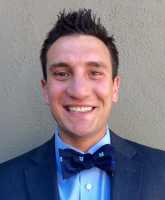Author Interviews, Depression, Fertility / 28.08.2015
Depression Risk Not Raised After Unsuccessful Fertility Treatments
MedicalResearch.com Interview with:
Camilla Sandal Sejbaek PhD
Department of Public Health
University of Copenhagen
Medical Research: What is the background for this study? What are the main findings?
Response: Previous literature have shown ambiguous results when investigating the association between becoming a mother and depression among women in fertility treatment. Small questionnaire-based studies with self-reported depression have shown that women in unsuccessful fertility treatment had a higher risk of depressive symptoms compared to women in successful fertility treatment. Two larger register-based studies using clinical depression (depression diagnosed at the psychiatric hospitals) have shown that women becoming a mother are at increased risk of clinical depression.
Our findings, from a large register-based study with about 41,000 women in assisted reproductive technology (ART) treatment, showed that women WHO became mothers had a higher risk of clinical depression compared to women in ART treatment WHO did not become mothers. The risk of clinical depression were more than five-fold higher within the first 6 weeks after becoming a mother to a live-born child.
(more…)

























